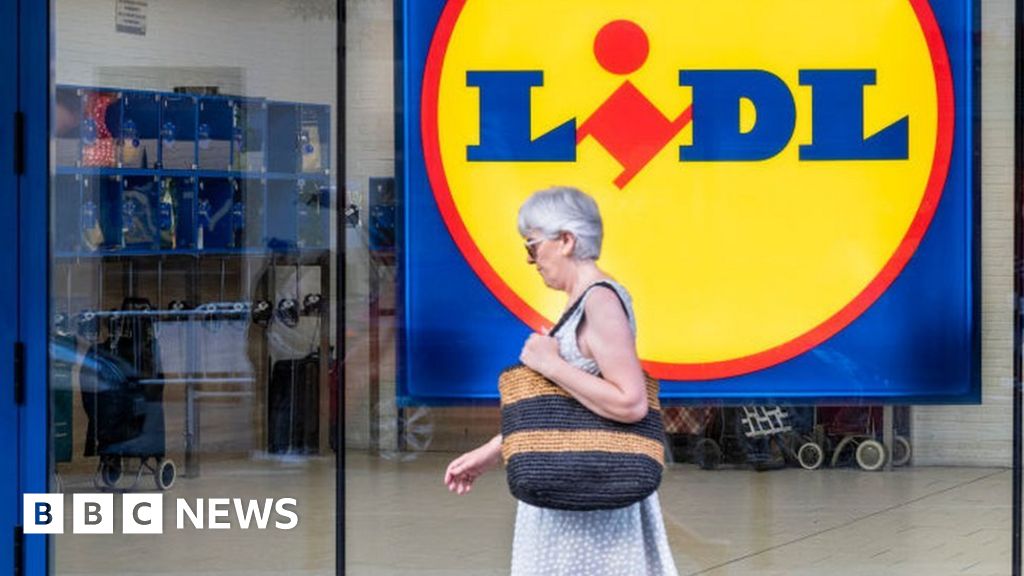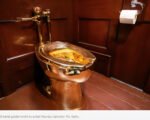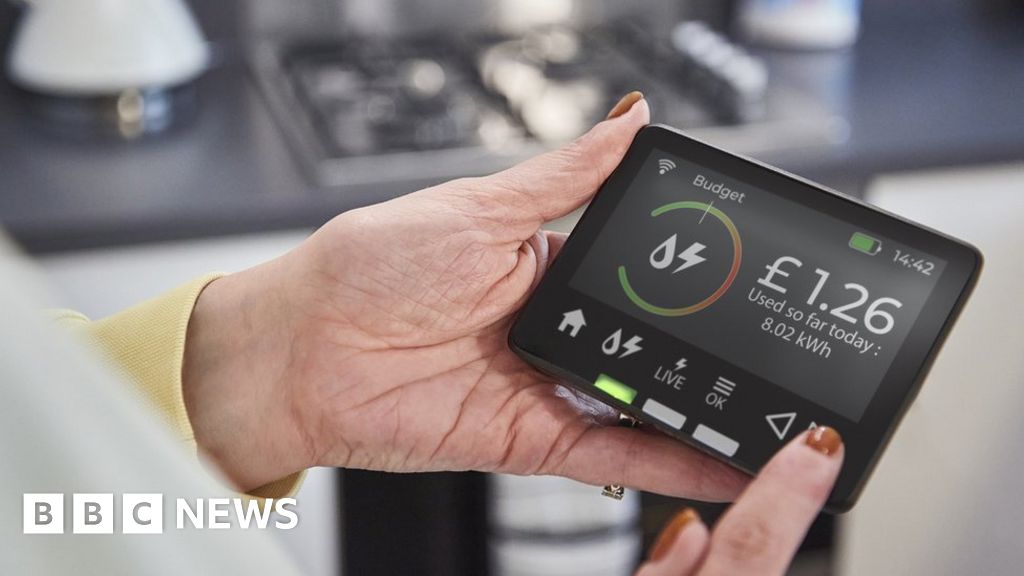
By Michael Race
Business reporter, BBC News
Lidl has revealed its British business swung to a loss last year as a result of its expansion plans and costs rising “across the board”.
The discount supermarket reported a full-year pre-tax loss of £75.9m, after posting profits of £41.1m the year before.
Lidl said it had opened more than 50 shops in a year and increased its market share among its rivals.
It added it had “held firm on its promise” of lower prices for shoppers.
Lidl, and its fellow German discount chain Aldi, have seen their popularity increase as customers have switched from bigger supermarkets due to household budgets being squeezed by the rising cost of living.
In its latest results, Lidl said its sales rose by 18.8% to £9.3bn, but its losses could be “attributed to the significant investments… alongside the challenging inflationary environment which led to an increase in costs across the board”.
Ryan McDonnell, Lidl’s chief executive for Great Britain, said the entire retail industry had been hit by inflation and Lidl was “no exception”.
But he said it was “important” that the supermarket kept its price promises and its price gap in relation to the likes of Asda, Morrisons, Tesco and Sainsbury’s.
“We’ve invested in keeping our prices low for customers in what has been a very challenging year for most,” he said.
Mr McDonnell said there was “no ceiling” to the company’s ambitions, adding he saw potential for hundreds more Lidl supermarkets across the country.
Asked by the BBC whether Lidl’s losses were sustainable, despite its increase in sales, Mr McDonnell said: “The momentum on the back of all of this investment in that is really encouraging for the business model”, adding that the “numbers speak for themselves” in terms of Lidl being a disruptor to the traditional supermarket industry.
“As a privately owned business, we have that ability to make these decisions, having immediate benefits for customers,” he added.
Image source, Getty Images
Further losses for John Lewis
Along with Lidl, John Lewis, which also owns Waitrose, reported further losses to its business for the first half of 2023.
The High Street giant said its plan to return “sustainable” profit would take two years longer with its target now 2028 as a result of rising business costs and larger than expected investment requirements.
The group’s pre-tax losses narrowed to £59m for the first half of 2023, from a £99m loss a year earlier, and the company said its modernisation plans would “take precedence” over its staff bonus.
The department store has faced tough competition in recent years on the High Street, resulting in a series of store closures, while its supermarket chain Waitrose has also underperformed.
For the first half of this year, Waitrose saw the value of sales rise by 4%, but the supermarket said this was driven by prices for its goods jumping 9% and the actual amount of products sold had actually fallen.
Customers at John Lewis department stores were spending “more on themselves”, the company said, with its sales in its beauty and fashion departments up, partly driven by new brands including JoJo Maman Bébé and Le Specs.
But the group said shoppers were being “more cautious” over buying technology products and so-called big ticket items for their homes.
“It’s been a case of more loafers and fewer sofas,” the retailer said.
Dame Sharon White, chairwoman of John Lewis, told the BBC’s Today programme that she was “very encouraged” by the group’s latest results, with losses narrowing losses ahead of the peak Christmas trading period.
She said the “transformation for the partnership will take time”, but said the group’s customers were showing a “vote of confidence” in its brands.
In March this year, John Lewis said it would not pay a staff bonus for only the second time since the scheme began in 1953, after a “very tough” 2022.
As well as each owning a stake in the business, John Lewis and Waitrose staff – referred to by the company as partners – have a say in the way it is run.
In May, employees backed Dame Sharon in a vote of confidence after she ruled out selling a stake in the business following speculation that a change to John Lewis’s employee-owned structure was being considered.










